Kylie Jenner just broke the internet – again.
Kylie Jenner's brand, leveraging her personal image and strong follower interaction, drives global trends. So, what does this candid revelation about her previously well-kept secret mean for her, and what can brands learn from this moment on socials?
June 10, 2025
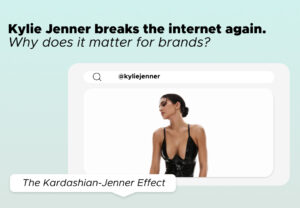
In a casual TikTok comment, reality-star, A-list influencer and entrepreneur, Kylie Jenner, shared her breast implant size – something fans have speculated about for years but never confirmed. Suddenly, the conversation exploded all over social media But this viral moment isn’t about implants. It’s about influence, branding, and what every business can learn from how Kylie builds and scales her personal brand online.
The Creator Economy is Listening – Are You?
This Kylie moment isn’t isolated – it’s illustrative. She’s proof that brand identity, when built authentically (and maybe a little surgically), can drive global conversations. Her beauty empire came from a teenage insecurity. And her implant comment may be sparking her next pivot.
And while you don’t need lip fillers or a momager to build a brand, you do need clarity, consistency, and community. Because your followers aren’t just watching. They’re making a real business decision for you – with likes, comments, shares – and best case, with their wallets.
The next trend, movement, or product? It might be hidden in your comment section. You just have to engage.
From Tabloid to Trend (to Product)
Kylie Jenner once confessed that her lips were her biggest insecurity. But instead of letting that vulnerability define her privately, she and her mother, Kris Jenner, transformed it into a billion-dollar empire. The Kylie Lip Kit wasn’t just a product. It was a business blueprint: monetize the conversation already happening about your image online.
And that wasn’t a one-off:
Kris Jenner saw the power of perception early – and turned it into product.
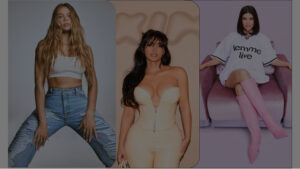
- SKIMS? Born from Kim Kardashian’s derrièrè, arguably the most discussed body part of the 2010s. She turned tabloid obsession and fashion critique into shapewear that celebrates curves.
- Lemme by Kourtney? A direct result of her gluten-free, wellness-centric lifestyle in Calabasas that dominated her social storyline for years.
- Good American by Khloé? A reflection of her decade long body-positivity journey.
- 818 Tequila by Kendall? Well, we are not sure how this relates to her supermodel status, horseback riding, or her anxiety she emphasizes in every episode of the Hulu show.
Every Kardashian product is rooted in one thing: a hyper-curated personal brand, built and tested live on social media.
So – can we expect a viral wonder-bra-corsette drop for her clothing brand Khy out of the buzz, or a perfectly sculpted T-shirt bra collab with sister Kim?
The Kylie Comment Heard Around the Internet
Kylie did it again – this time, less curated, more candid.
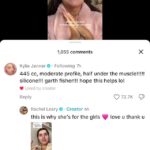
It wasn’t just about what she said.
It was about when she said it.
And why now?
Users are criticizing Kylie Jenner for revealing her breast implant size not because she shared it – but because she has denied it for years.
For over a decade, Kylie has carefully curated a public image rooted in the “natural glow-up,” attributing her changing appearance to makeup techniques, puberty, or strategic styling.
At the same time, she actively built her business empire around Kylie Cosmetics on that narrative.
The breast enhancement reveal, especially framed casually in an offhand comment, feels to many like a betrayal – not just of transparency, but of the trust she built with her community, many of whom modeled their own self-image.
The backlash exposes a core truth of modern influence: community is everything.
Even celebrities as powerful as Kylie Jenner are no longer immune to the rules of social media culture, where authenticity and accountability are currency. When audiences feel emotionally invested, they expect honesty in return – especially from those who profit from their loyalty.
In an era where creators build their brands in real time, with followers watching every step, the cost of curated inauthenticity can be quite high.
Transparency isn’t optional – it’s foundational. And when creators fail to own their truth, they not only risk reputational damage but fracture their relationship with their community.
Kylie’s moment is a reminder for all brands and creators alike: even the most polished personal brand must be anchored in real connection. In the end, community doesn’t want perfection. It wants honesty and authenticity. And in today’s social spheres, that’s the only long-term strategy that scales.
Cultural Trend: Beauty as Emotional Economics
Trends are more than just seasonal shifts. They’re barometers of cultural sentiment.
Online communities are drawing direct lines between macroeconomics and micro-aesthetics. The phrase “recession indicator” has gone viral, used to explain everything from the return of skinny jeans to the resurgence of ultra-lean silhouettes powered by Ozempic and Mounjaro.
The logic is simple: when people feel a lack of control in one area – finance, stability, the future – they often seek it in another – the body, consumption, routine.
From a marketing perspective, this shift is already shaping behavior.
Take Ulta Beauty: despite economic pressure, the brand reported strong sales in May 2025. CEO Kecia Steelman credited this to the emotional resilience tied to beauty rituals. They aren’t seen as indulgences, but as essential self-care. Meanwhile, Hailey Bieber’s skincare brand Rhode has tapped into the “clean girl” economy, and just sold for $1 billion to e.l.f. Beauty after only three years by offering minimalist, accessible products that meet Gen Z where they are, financially and emotionally.
And then there’s Kylie.
Kylie’s brand defies the trend – and that’s the point.
While other brands chase recession-proof positioning, Kylie remains aspirational. That contrast makes her brand culturally magnetic. A brand that floats above financial worry, recession logic, or minimalist trends. Her aesthetic doesn’t adjust to the market – it sets its own. From a business standpoint, it’s masterful: you don’t need it, but you want it. So now, psychologically, you need it.
What Brands Can Learn from the Kardashian-Jenner Effect
The Kardashian-Jenners didn’t just respond to online culture. They used it as a feedback loop. They went from audience to identity, creating a product in real time. Every insecurity, critic, highlight and personal moment turned into a business asset. This playbook goes beyond celebrity status. It can serve as a blueprint for all creators, entrepreneurs, and brands:
Humanize your brand. Listen to your audience. Build the product they’re already asking for.
Latest News ☕

Why 2026’s color trends signal a strategic shift for brand marketing
January 17, 2026
Pinterest's 2026 Palette, released January 2026, identifies five trending colors based on ...
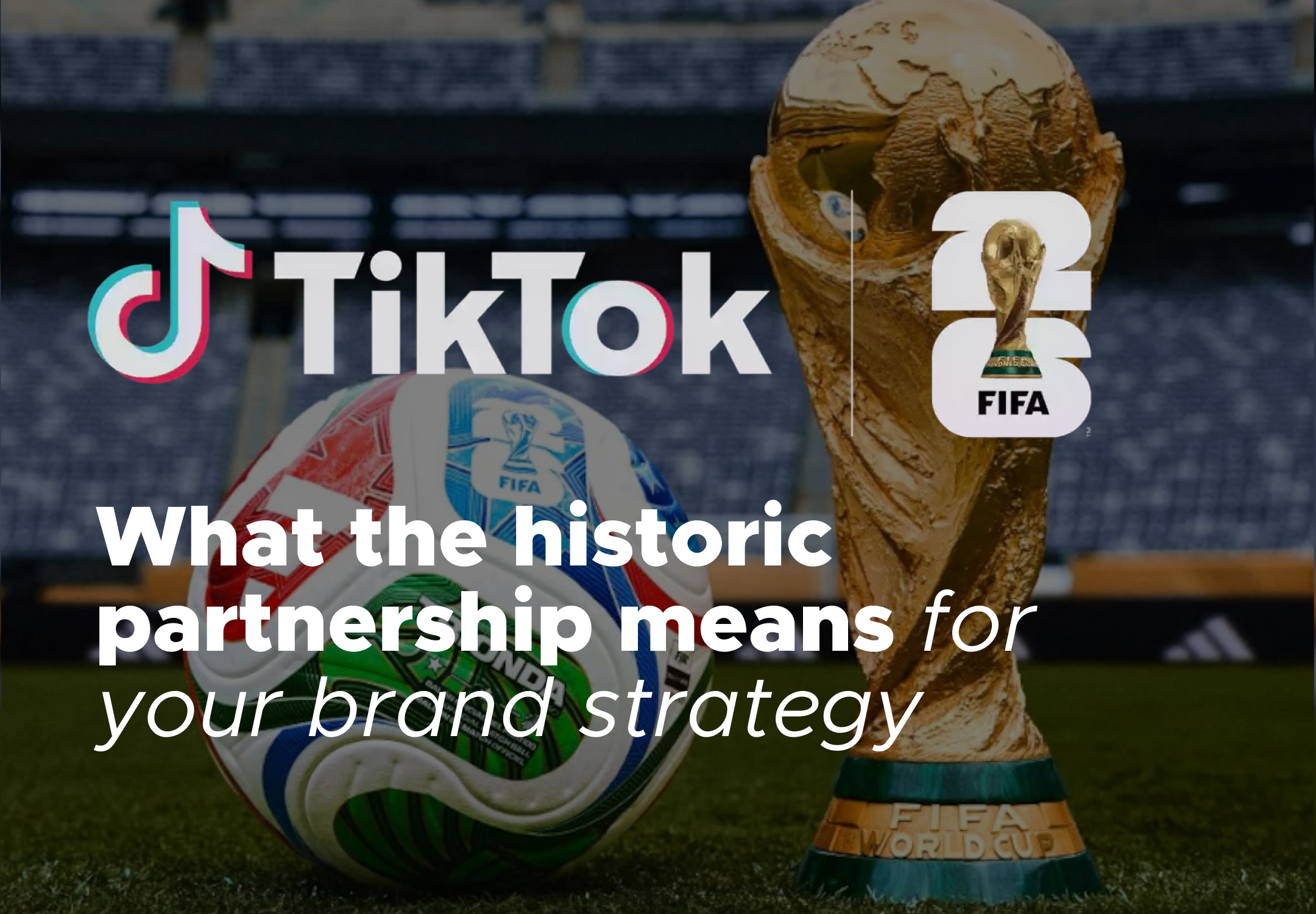
TikTok becomes FIFA’s first preferred platform for the World Cup 2026
January 13, 2026
TikTok's groundbreaking preferred platform agreement with FIFA for the 2026 World Cup rede...
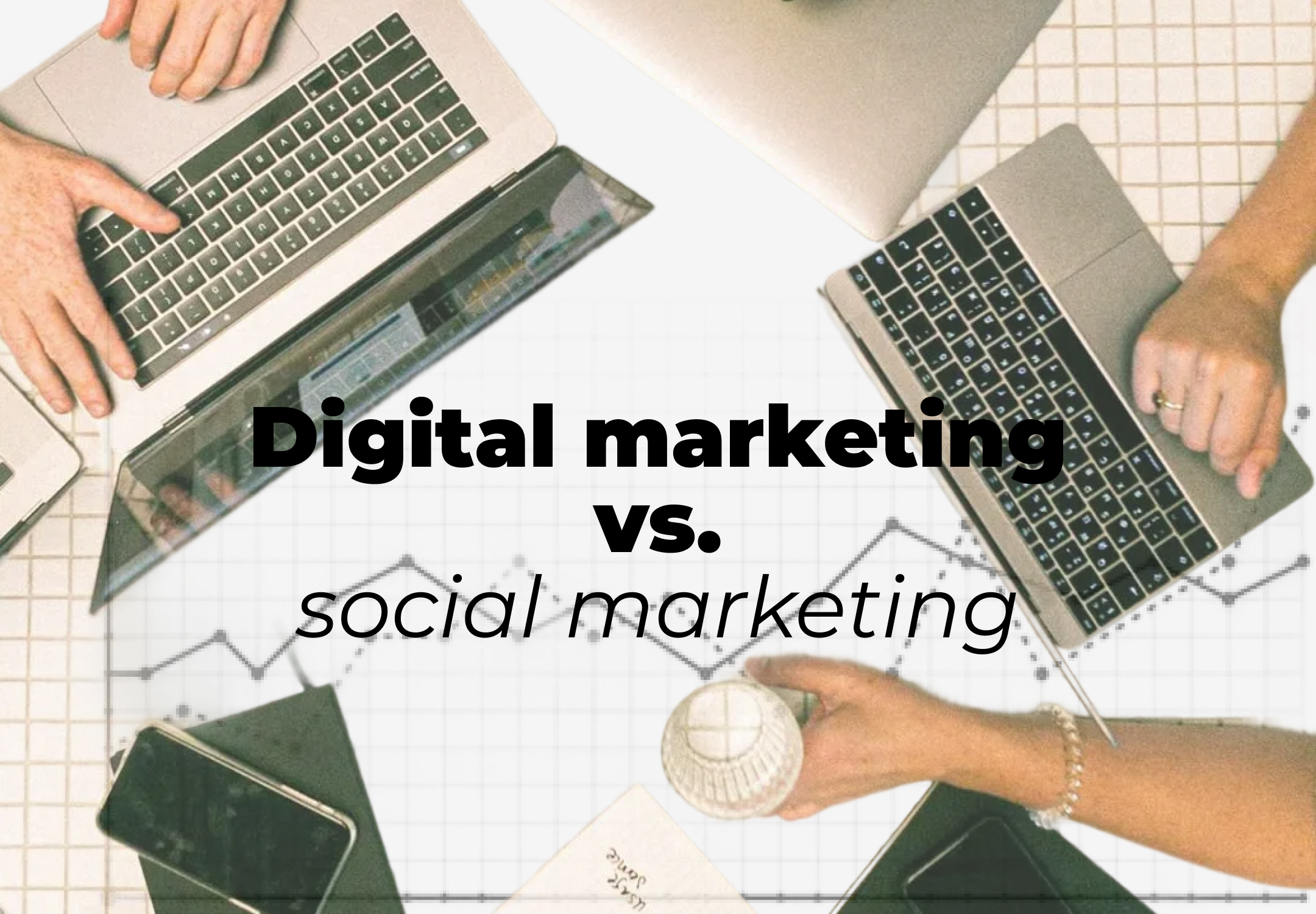
Digital marketing vs. social marketing: Understanding the difference in 2026
January 9, 2026
Even experienced marketers often use "digital marketing" and "social marketing" interchang...

